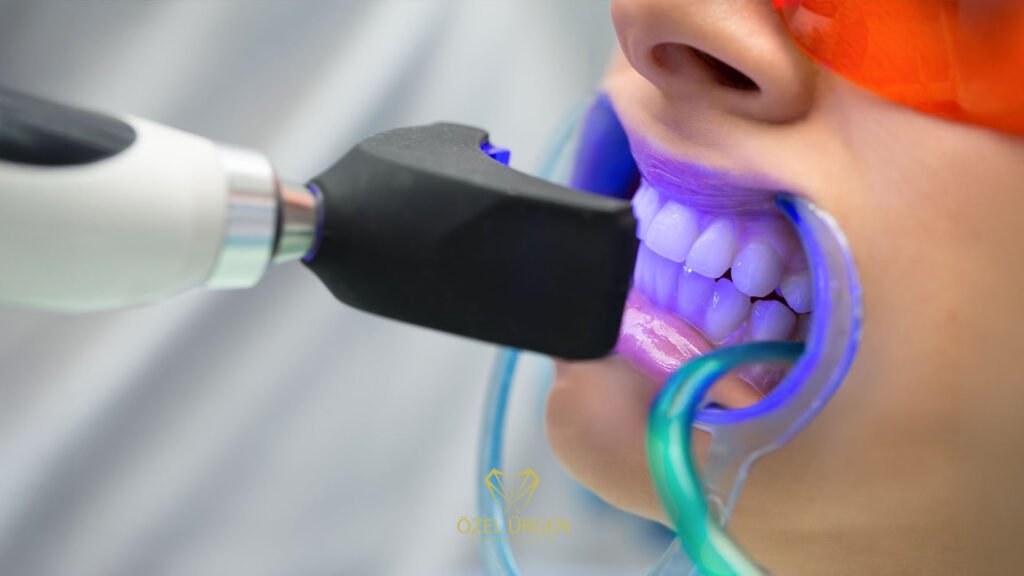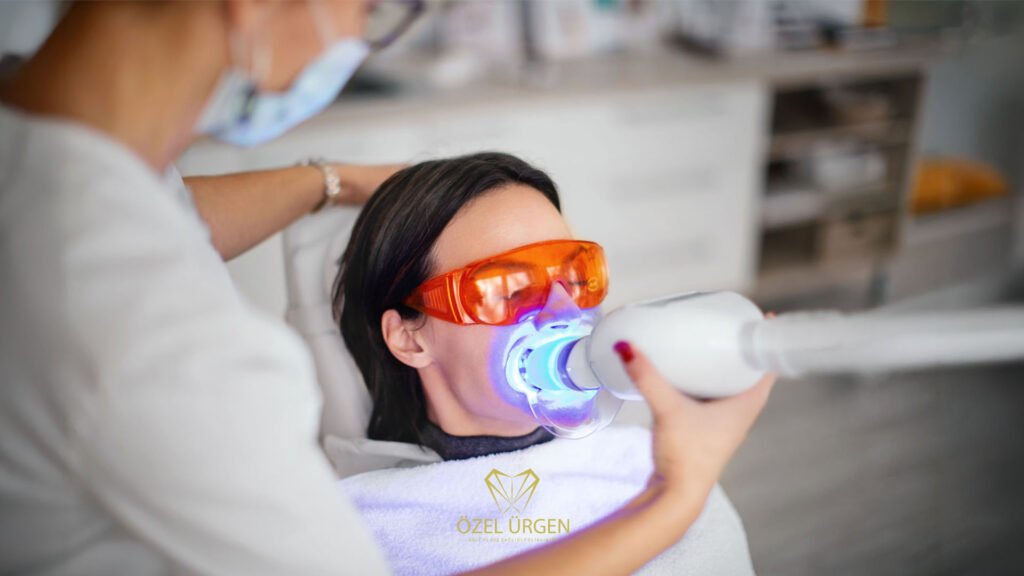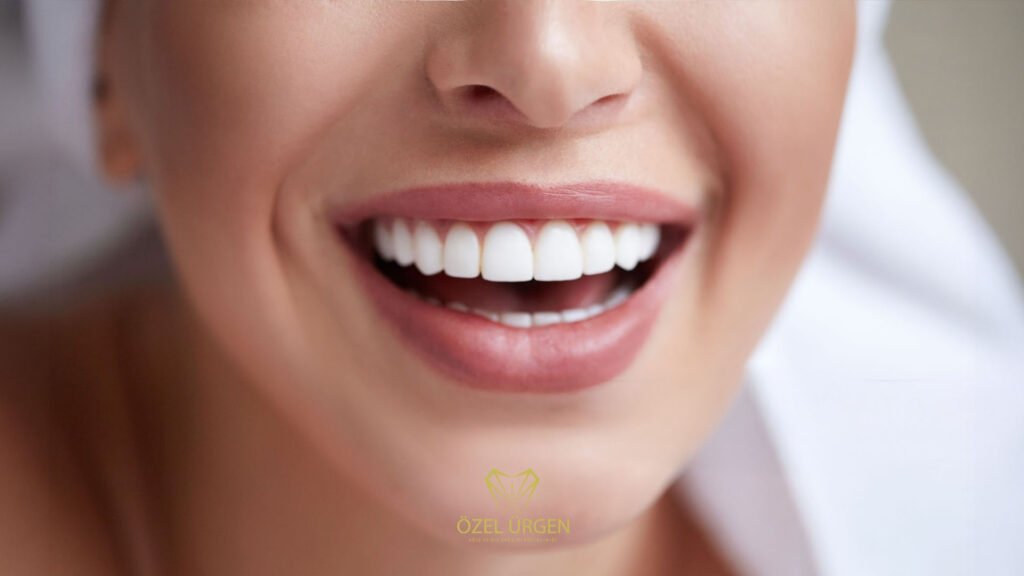- Mon - Fri 10:00 - 19:00
- Hacıhalil, Hükümet Cd. No : 80 Gebze/Kocaeli
- info@urgendis.com

A smile is one of the strongest impressions a person leaves on others. A genuine smile reflects our sincerity, energy, and confidence. However, yellowing, stains, or a dull appearance of teeth can often overshadow this natural expression. Habits such as drinking coffee, tea, smoking, or age-related changes in tooth color may lead individuals to hide their smiles. Many people cover their mouths while taking photos or smile hesitantly in social settings, sharing a common concern: their teeth do not look aesthetically pleasing.
Teeth whitening is one of the safest and most effective ways to revive your smile. This procedure not only improves aesthetics but also positively affects social life and self-confidence. In short, teeth whitening enhances not just the teeth themselves but also the message your smile conveys, making it brighter and more impactful.
Tooth discoloration over time is a natural process, but it can cause aesthetic concerns. Several factors can affect the color of your teeth, and understanding these reasons is essential for choosing the right treatment. One of the most common causes is dietary habits. Beverages like coffee, tea, cola, red wine, and foods containing colorants can penetrate the enamel, causing stains. Tobacco products are another major factor; smoking cigarettes, cigars, or using hookah can leave persistent stains ranging from yellow to brown.
With age, natural changes occur in tooth structure; as enamel thins, the underlying dentin becomes more visible, giving teeth a darker appearance. Certain medications, especially antibiotics taken during childhood, can also cause permanent discoloration. In addition, inadequate oral hygiene can contribute to color changes. Failure to brush and floss regularly leads to plaque and tartar buildup, which gradually diminishes the natural shine of teeth. In summary, tooth discoloration is influenced by lifestyle, habits, health status, and age, not a single factor alone.

There is no single method for teeth whitening; options vary depending on tooth structure, expectations, and lifestyle. One of the most popular methods is in-office whitening. The dentist applies special gels and sometimes uses light activation. This method is fast and effective, usually providing results in a single session, although temporary sensitivity may occur afterward.
Another option is at-home whitening. In this method, the dentist prepares custom trays, and the patient applies the whitening gel according to a schedule at home. While the process is slower, it is fully under the patient’s control.
For the most effective and long-lasting results, a combination of in-office and at-home whitening can be used. This approach allows quick results while helping maintain the achieved whiteness over time. In short, whitening methods are tailored to the individual, and the best approach is determined together with your dentist.
Generally, anyone with healthy teeth and gums can undergo teeth whitening. However, there are some situations where the procedure may not be appropriate:

To maintain the results of teeth whitening and minimize sensitivity, certain precautions should be taken. The first 24-48 hours are critical, as teeth are more susceptible to staining during this period. Avoid beverages with high staining potential, such as coffee, tea, red wine, and cola, as well as dark-colored foods like beets and blueberries. Smoking and other tobacco products can also reduce the effectiveness of whitening and harm oral health.
Temporary tooth sensitivity may occur after the procedure. Using dentist-recommended toothpaste can provide relief and protect the enamel. Maintaining regular brushing and flossing helps keep teeth clean and preserves whiteness. Periodic check-ups are also important to monitor dental health and apply touch-ups if necessary. In short, small but effective habits can help maintain a healthy and bright smile for a long time.
Teeth whitening does not harm teeth when performed using correct methods under professional supervision. However, unregulated products or DIY home remedies can seriously damage enamel and gums. Professional whitening gels contain safe concentrations of active ingredients, and the dentist’s supervision minimizes risk. Temporary sensitivity may occur in some cases, but this is usually short-lived. The main issue arises with unknown internet-purchased products or home remedies like baking soda and lemon, which can erode enamel and cause irreversible damage. In summary, teeth whitening is not inherently harmful; what matters is that it is performed professionally and appropriately for the individual.

The cost of teeth whitening varies depending on the method, quality of materials, and number of sessions needed. There are differences in both procedure and cost between professional in-office whitening and at-home whitening.
Additionally, each individual’s tooth structure, degree of discoloration, and expectations affect the treatment plan. Therefore, the most accurate approach is a personalized evaluation to determine the best method and cost.